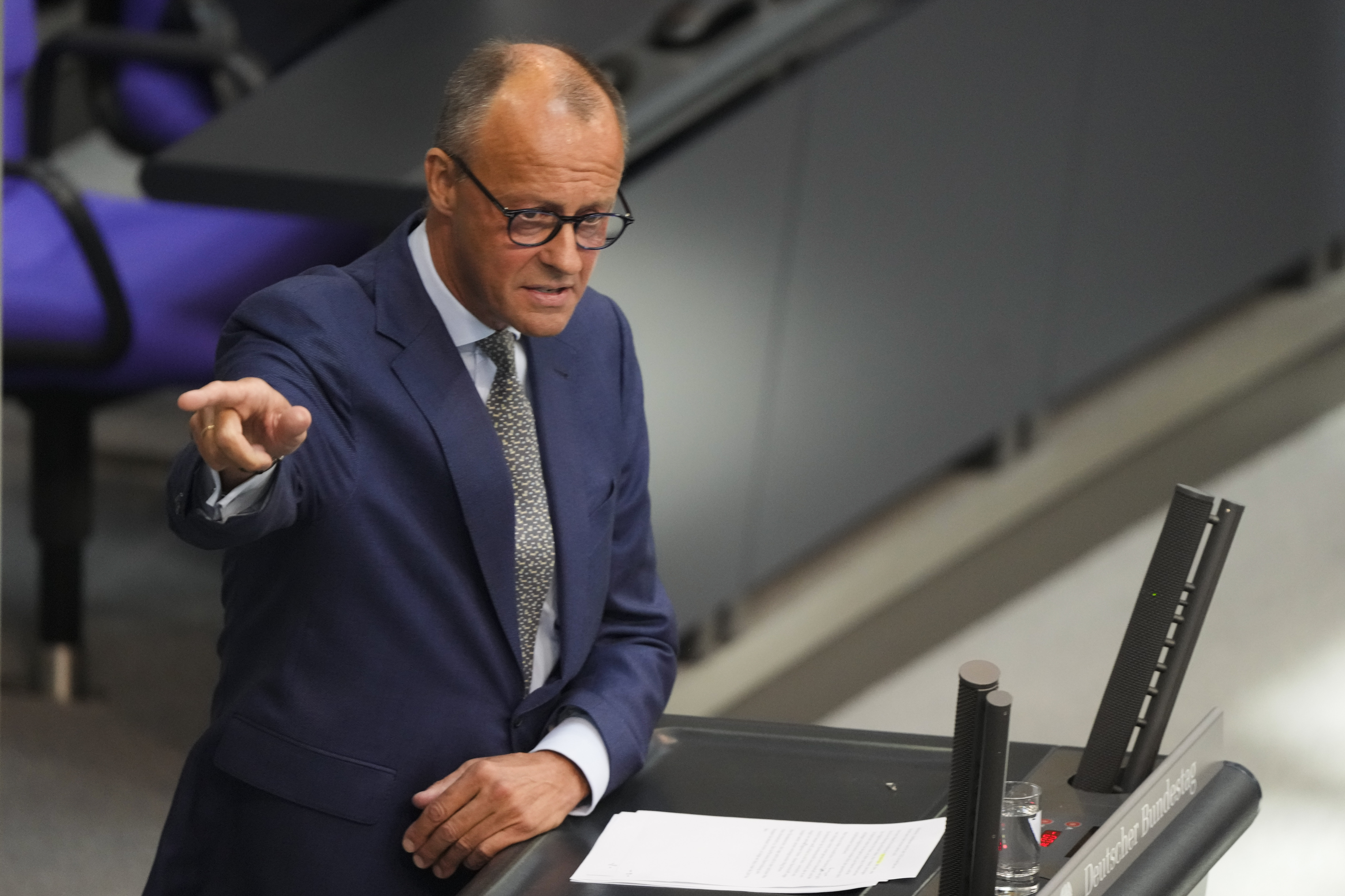The leader of Germany’s CDU opposition party, Friedrich Merz, has walked back the suggestion his party may work with the right-wing Alternative for Germany (AfD) party at a local level after ferocious backlash from members of his own party.
Speaking on Sunday to the broadcaster ZDF, Merz said that in areas where AfD candidates are elected, “it is natural to look for ways to continue to work in that city.”
He added that “results should be respected” amid attempts by some establishment politicians to discredit the recent electoral successes of the AfD following its first mayoral election in Raguhn-Jeßnitz, a small town in the state of Saxony-Anhalt earlier this month, and Robert Sesselmann’s municipal victory in Thuringia last month.
[pp id=83825]
Germany’s mainstream parties have long insisted there is no possibility of ever working with the AfD, considered by establishment politicians and the media to be a fringe organization rebuked for its opposition to Germany’s liberal mass immigration policies.
However, with the party now rising exponentially in national polls, this resistance to working with them is beginning to be tested in reality, and the CDU risks relinquishing control of municipalities to Germany’s left-wing parties should they continue to hold such a hard line.
Despite this, a number of high-profile CDU officials publicly criticized the position Merz appeared to be moving towards.
“The AfD only knows opposition and division,” said Kai Wegner, the CDU mayor of Berlin. “The CDU cannot and will not work with a party whose business model is hatred, division and exclusion,” he added.
Others reminded Merz of a party congress resolution stating that cooperation with the AfD meant consciously tolerating “right-wing extremist ideas, anti-Semitism, and racism.”
“No cooperation with the AfD means no cooperation with the AfD. On any level. Very simply. Not now and not in the future,” added CDU federal executive board member Serap Güler, while former CDU Prime Minister of Saarland Tobias Hans called the move a “creeping watering down of party congress decisions following electoral successes by the extreme right.”
[pp id=84402]
On Monday, Merz swiftly changed tack, taking to Twitter to spectacularly U-turn on his previous remarks.
“To make it clear once again, and I have never said it differently: The resolution of the CDU applies. There will be no cooperation between CDU and the AfD at the municipal level,” he tweeted.
AfD co-chair Alice Weidel responded to Merz’s correction on the same platform.
“I already said it weeks ago: The CDU will not come around. It leads the CDU into the left trap and turns it into a mere pawn of the Greens. That Frederick Merz is once again afraid of his own courage and backtracks again is characteristic of his wavering course. In any case, the AfD remains willing to work with all parliamentary parties who care about our country and support a turn back to reason,” she tweeted.
Weidel’s party has soared in popularity due to its objections to Russian sanctions, which contributed to a cost-of-living crisis in Germany, and its opposition to mass immigration.
The party, which has always performed well in the east of Germany and is leading in polls in all but one state, is now becoming more popular in the west, with a recent poll placing it third in Baden-Württemberg at a record 19 percent, behind the Green Party (24 percent) and the CDU (26 percent).
Earlier this month, the party recorded its highest-ever nationwide polling with 22 percent of the vote share, putting the party four points ahead of the ruling Social Democrats (SPD) and solidly in second place.






